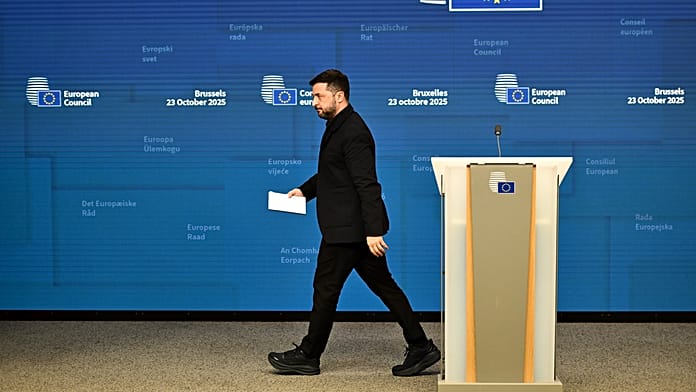UK workers forecast to get extra £447 on average in first real salary increase for four years
UK workers are forecast to get a 1.3 per cent real salary increase next year, the first real salary increase in four years.This would equate to an average salary boost of almost £450, if businesses repeat nominal pay increases and inflation eases as anticipated, new analysis has found.According to the latest annual Salary Trends Report by global mobility expert ECA International, UK businesses expect to repeat a higher-than-usual nominal pay increase of five per cent.With UK inflation forecast to fall to the lowest rate since 2021 at 3.7 per cent, it could mean UK workers see the highest real-terms increase since the 1.7 per cent received in 2020.WATCH NOW: Liam Halligan on earnings growth figures this month For a worker on the UK average salary of £34,372, it could mean an extra £447 per year.The research found the UK ranks 38th globally and seventh in Europe for real-terms salary increases forecasted next year.It outpaces the expected average global rise of one per cent.Oliver Browne, Renumeration and Policy Surveys Manager at ECA International, said: “UK workers have had a difficult few years, with the economic impact of the COVID-19 pandemic immediately followed by the surge in inflation after Russia's invasion of Ukraine wiping out any real-term gains of their pay increases. “Now that inflation is finally expected to fall below four percent, employees in the UK should be able to look forward to their first real-terms pay increase since 2020.”UK inflation is falling more slowly than in Germany, Switzerland and Italy, but as the nominal salary increase forecasted by businesses in the UK is higher, researchers found the UK overtakes them in rank for real salary increases next year.Real salaries in the UK are expected to outperform those in many other European countries, rising 0.4 percentage points higher than the 0.9 per cent European average.Mr Browne added: “With inflation so high, many businesses in the UK have been unable to offer their employees pay awards to match. “Nominal increases are expected to remain higher than usual next year despite falling inflation, suggesting some companies may instead be spreading larger increases over a longer period.”However, while UK workers could see the first real salary increase since 2020, the ongoing six-year freeze to the personal allowance and higher-rate thresholds of income tax mean workers need to pay tax on more of their income as wages rise. LATEST DEVELOPMENTS:460,000 people to get 10 per cent pay riseRetiree with dementia was owed £7,000 after Ovo Energy tripled bills400,000 pensioners urged to set aside part of state pension for HMRC tax demandsMore than 460,000 people who work for 14,000 employers will get a 10 per cent pay rise from this week.The Living Wage Foundation said its voluntary rates will increase to £12 an hour outside London – a boost of £1.10 – and to £13.15 an hour in the capital – a £1.20 rise.Living Wage Foundation director Katherine Chapman said: “As inflation eases, we cannot forget that low-paid workers remain at the sharp end of the cost-of-living crisis.“Low-paid workers continue to struggle with stubbornly high prices because they spend a larger share of their budget on food and energy.“These new rates are a lifeline for the 460,000 workers who will get a pay rise.”


UK workers are forecast to get a 1.3 per cent real salary increase next year, the first real salary increase in four years.
This would equate to an average salary boost of almost £450, if businesses repeat nominal pay increases and inflation eases as anticipated, new analysis has found.
According to the latest annual Salary Trends Report by global mobility expert ECA International, UK businesses expect to repeat a higher-than-usual nominal pay increase of five per cent.
With UK inflation forecast to fall to the lowest rate since 2021 at 3.7 per cent, it could mean UK workers see the highest real-terms increase since the 1.7 per cent received in 2020.
WATCH NOW: Liam Halligan on earnings growth figures this month
For a worker on the UK average salary of £34,372, it could mean an extra £447 per year.
The research found the UK ranks 38th globally and seventh in Europe for real-terms salary increases forecasted next year.
It outpaces the expected average global rise of one per cent.
Oliver Browne, Renumeration and Policy Surveys Manager at ECA International, said: “UK workers have had a difficult few years, with the economic impact of the COVID-19 pandemic immediately followed by the surge in inflation after Russia's invasion of Ukraine wiping out any real-term gains of their pay increases.
“Now that inflation is finally expected to fall below four percent, employees in the UK should be able to look forward to their first real-terms pay increase since 2020.”
UK inflation is falling more slowly than in Germany, Switzerland and Italy, but as the nominal salary increase forecasted by businesses in the UK is higher, researchers found the UK overtakes them in rank for real salary increases next year.
Real salaries in the UK are expected to outperform those in many other European countries, rising 0.4 percentage points higher than the 0.9 per cent European average.
Mr Browne added: “With inflation so high, many businesses in the UK have been unable to offer their employees pay awards to match.
“Nominal increases are expected to remain higher than usual next year despite falling inflation, suggesting some companies may instead be spreading larger increases over a longer period.”
However, while UK workers could see the first real salary increase since 2020, the ongoing six-year freeze to the personal allowance and higher-rate thresholds of income tax mean workers need to pay tax on more of their income as wages rise.
LATEST DEVELOPMENTS:
- 460,000 people to get 10 per cent pay rise
- Retiree with dementia was owed £7,000 after Ovo Energy tripled bills
- 400,000 pensioners urged to set aside part of state pension for HMRC tax demands
More than 460,000 people who work for 14,000 employers will get a 10 per cent pay rise from this week.
The Living Wage Foundation said its voluntary rates will increase to £12 an hour outside London – a boost of £1.10 – and to £13.15 an hour in the capital – a £1.20 rise.
Living Wage Foundation director Katherine Chapman said: “As inflation eases, we cannot forget that low-paid workers remain at the sharp end of the cost-of-living crisis.
“Low-paid workers continue to struggle with stubbornly high prices because they spend a larger share of their budget on food and energy.
“These new rates are a lifeline for the 460,000 workers who will get a pay rise.”







































